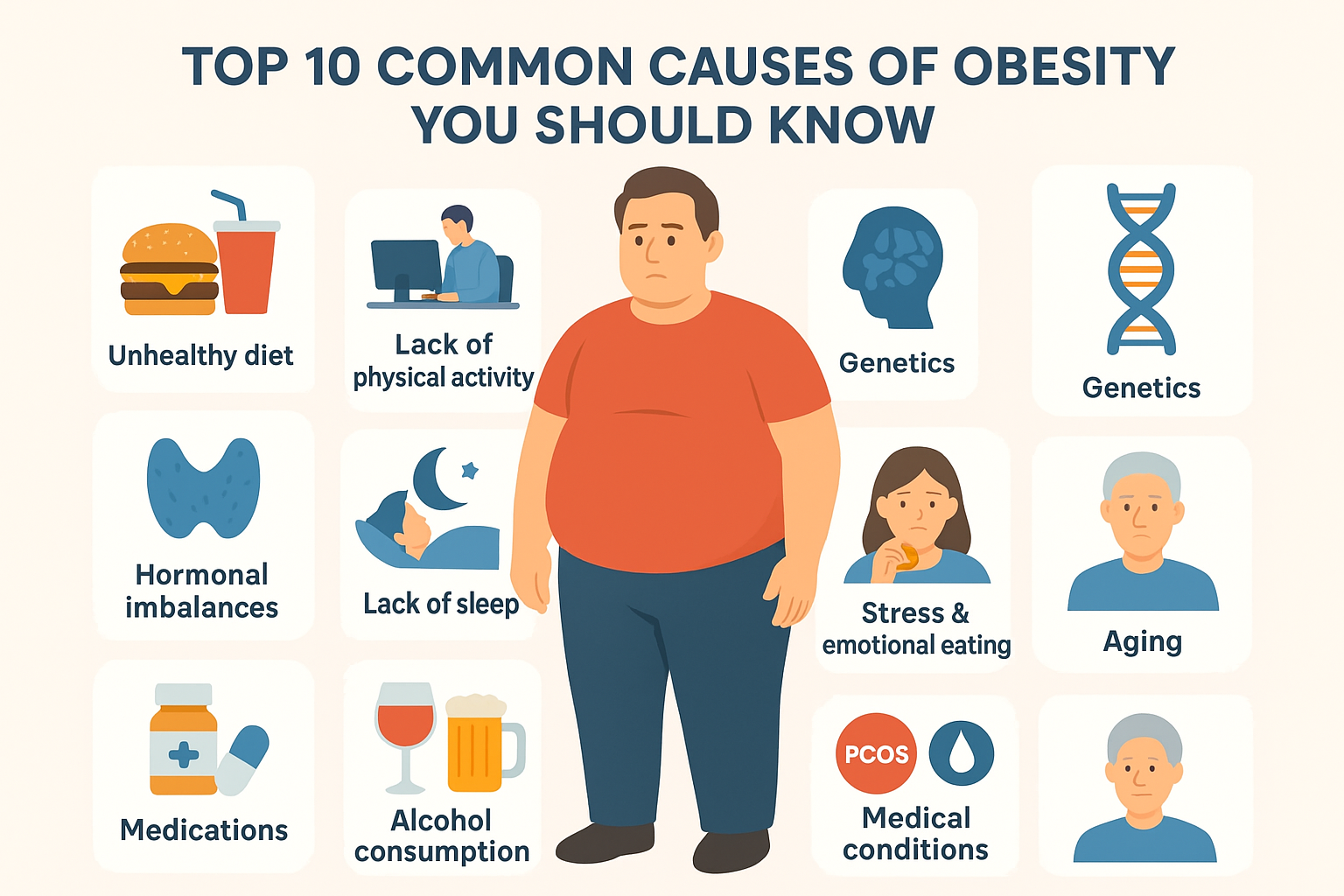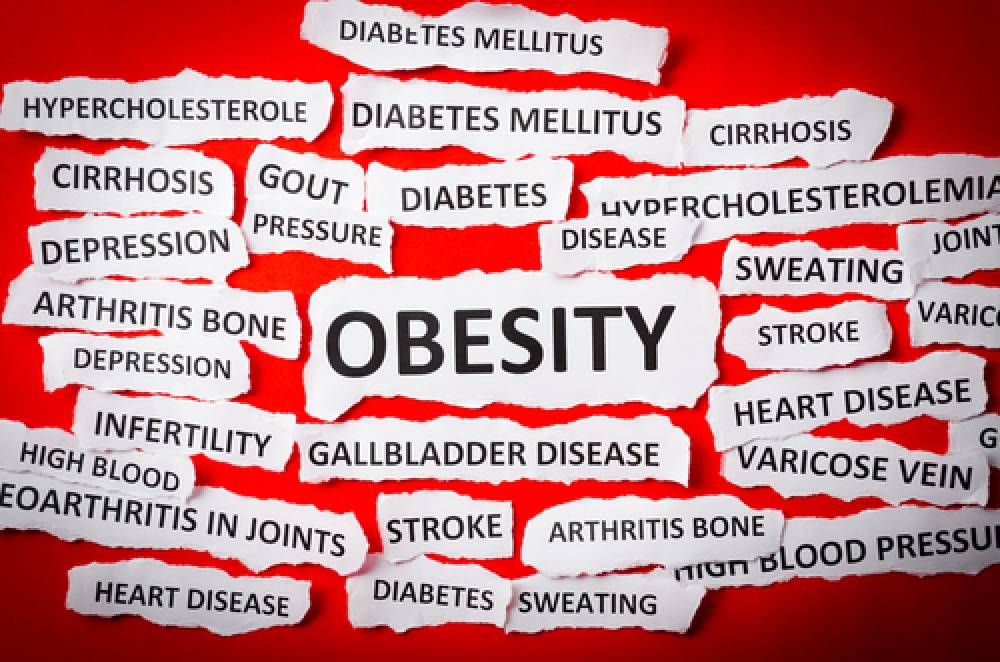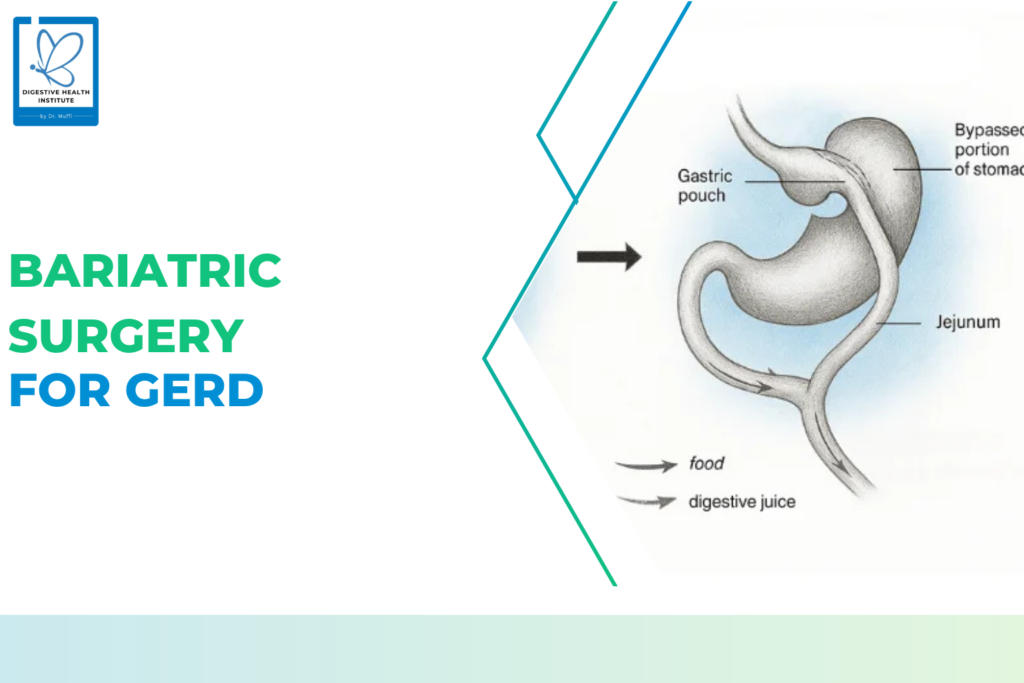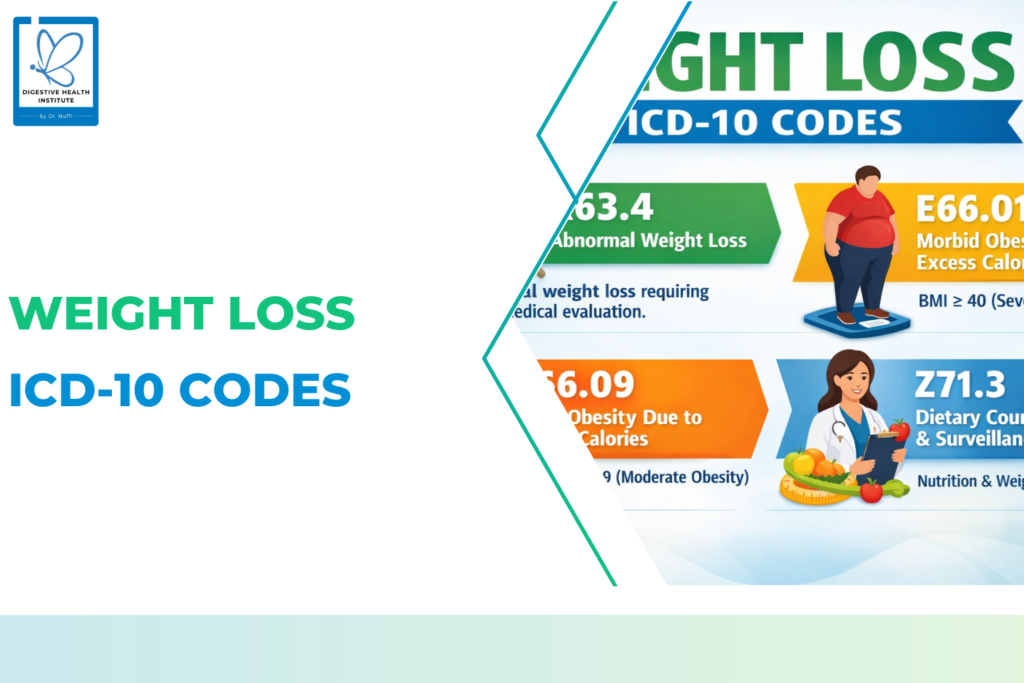Top 10 Common Causes Of Obesity You Should Know

Obesity is no longer just a cosmetic concern—it has become one of the most significant global health challenges of the 21st century. According to the World Health Organization (WHO), worldwide obesity rates have nearly tripled since 1975. Today, more than 1 billion people are obese, including 650 million adults, 340 million adolescents, and 39 million children. These numbers continue to rise at an alarming rate.
While genetics and environment play a role, most obesity cases are preventable. Understanding the causes of obesity can help you make informed lifestyle choices, improve your health, and even reduce your risk of chronic diseases such as diabetes, heart disease, hypertension, and certain cancers.
In this article, we’ll explore the top 10 most common causes of obesity, along with practical prevention strategies, weight loss tips, and treatment options—including bariatric surgery for severe cases.
Let’s dive deeper into the root causes and find out how to overcome them.
1. Poor Dietary Habits
One of the most obvious yet most overlooked causes of obesity is an unhealthy diet. Modern food culture encourages consumption of calorie-dense, nutrient-poor foods that contribute directly to weight gain.
Foods and eating patterns that promote obesity:
- Fast food and fried items: Burgers, fries, and pizzas are packed with unhealthy fats and refined carbs.
- Sugary drinks: Sodas, energy drinks, and packaged juices often contain more sugar than a dessert.
- Processed snacks: Chips, biscuits, instant noodles, and packaged sweets provide empty calories.
- Large portion sizes: Supersized meals condition people to eat more than their body needs.
Over time, these habits cause a calorie surplus, leading to fat storage, especially around the abdomen.
Weight loss tips for diet improvement:
- Replace refined carbohydrates with whole grains such as oats, quinoa, and brown rice.
- Cut down on added sugars by avoiding packaged drinks and opting for water or unsweetened teas.
- Cook more meals at home to control ingredients and portion sizes.
- Follow the 80/20 rule: Eat nutrient-rich foods 80% of the time, and allow indulgence 20% of the time.
A healthy diet isn’t about strict restrictions—it’s about balance and consistency.
2. Sedentary Lifestyle
In today’s digital age, physical inactivity has become one of the biggest causes of obesity. Most people spend their day sitting—at desks, in cars, or in front of screens. When calories consumed are not burned, fat builds up quickly.
Effects of inactivity on obesity:
- Reduces calorie expenditure → weight gain.
- Decreases muscle mass → slower metabolism.
- Increases risk of insulin resistance and fat storage.
According to the Centers for Disease Control and Prevention (CDC), adults who engage in regular physical activity are less likely to become obese and face obesity-related conditions.
Weight loss tips to fight inactivity:
- Engage in 150 minutes of moderate activity weekly (e.g., brisk walking, swimming, cycling).
- Take short breaks every 30–40 minutes when sitting at a desk.
- Choose stairs over elevators and walking over short drives.
- Try simple exercises at home such as squats, push-ups, or yoga.
Even small daily movements, when consistent, add up to significant calorie burn.
3. Genetics and Family History
While lifestyle is a major factor, genetics also contribute to obesity risk. Research suggests that 40–70% of body weight variation can be linked to inherited factors.
How genetics influence obesity:
- Appetite regulation: Genes affect hunger hormones like leptin (fullness) and ghrelin (hunger).
- Fat distribution: Some people naturally store more fat in the abdomen or hips.
- Metabolic rate: Genetics can influence how quickly calories are burned.
Children with obese parents are at a significantly higher risk of becoming obese themselves—not only because of genetics, but also shared eating and activity habits.
Weight loss management tips for genetic predisposition:
- Monitor food intake closely with apps or journals.
- Practice portion control regardless of hunger levels.
- Focus on strength training to boost metabolism.
- Seek guidance from a doctor if obesity runs strongly in your family.
While you can’t change your genes, you can change your habits—and that makes all the difference.
4. Emotional Eating and Stress
Food is often used as comfort during times of stress, sadness, or boredom. This behavior, known as emotional eating, is one of the underestimated causes of obesity.
The stress–weight connection:
- Stress elevates cortisol, a hormone that promotes fat storage (especially belly fat).
- Emotional eating often involves high-calorie comfort foods such as sweets, fried snacks, or fast food.
- Over time, this leads to habitual overeating, regardless of physical hunger.
Studies suggest that chronic stress increases the risk of obesity by up to 25–30%.
Weight loss tips for emotional eating:
- Practice mindful eating: Pause before reaching for food and ask, “Am I truly hungry?”
- Engage in stress-relief activities such as deep breathing, meditation, or journaling.
- Replace stress-snacking with healthier alternatives like nuts or herbal tea.
- Talk to a counselor if emotional eating becomes a regular coping mechanism.
Learning to separate emotional hunger from physical hunger is key to better weight control.
5. Lack of Sleep
Poor sleep patterns are often overlooked as a cause of obesity. Research consistently shows that people who sleep less than 6 hours per night are more likely to gain weight.
How sleep affects weight:
- Hormonal disruption: Sleep loss increases ghrelin (hunger) and decreases leptin (satiety).
- Late-night cravings: Sleep-deprived individuals crave high-carb, high-sugar foods.
- Metabolism slowdown: Chronic lack of sleep lowers energy expenditure.
A study published in the journal Sleep found that people sleeping 5 hours or less were 55% more likely to be obese than those getting 7–8 hours.
Weight loss management through sleep hygiene:
- Maintain a consistent sleep schedule (go to bed and wake up at the same time).
- Limit caffeine and heavy meals before bedtime.
- Create a screen-free wind-down routine (reading, meditation, dim lights).
- Aim for 7–8 hours of quality sleep each night.
Good sleep is as important as diet and exercise for long-term weight control.
6. Medications and Medical Conditions
Some people experience weight gain as a side effect of medical issues or treatments. These hidden causes of obesity are often overlooked.
Health conditions linked to obesity:
- Hypothyroidism: Low thyroid hormone slows metabolism.
- Polycystic Ovary Syndrome (PCOS): Causes insulin resistance and fat accumulation.
- Cushing’s syndrome: Excess cortisol leads to fat gain.
Medications associated with weight gain:
- Antidepressants and antipsychotics
- Corticosteroids
- Certain diabetes medications (e.g., insulin, sulfonylureas)
- Beta-blockers for heart conditions
Weight loss tips in medical cases:
- Never discontinue medication without consulting a doctor.
- Ask about alternatives with fewer side effects.
- Counteract weight gain with diet and activity adjustments.
- Work with a healthcare provider on a tailored obesity treatment plan.
Understanding the medical component of obesity can prevent frustration and promote healthier management.

7. Environmental and Social Factors
Our environment often makes it easier to gain weight than to lose it. These external causes of obesity can be powerful influences.
Environmental contributors:
- Urban living: Abundance of fast-food outlets, lack of parks or safe walking paths.
- Work culture: Long hours, desk jobs, reliance on takeout meals.
- Social gatherings: Food is central to most events, often high-calorie and sugary.
Social influences:
- Eating habits shaped by family traditions.
- Peer pressure to indulge during outings.
- Advertising and marketing promoting unhealthy foods
Weight loss management strategies:
- Plan meals ahead when you know you’ll eat out.
- Encourage your social circle to join in fitness activities.
- Replace passive entertainment (movies, binge-watching) with active hobbies.
By making conscious choices, you can overcome environmental triggers that promote obesity.
8. Childhood Obesity
Obesity in childhood often translates into obesity in adulthood, making it one of the most concerning causes of obesity in later life.
Why early obesity matters:
- Overweight children have a 70–80% chance of becoming obese adults.
- Early exposure to sugary drinks, fast food, and screen time establishes unhealthy habits.
- Childhood obesity is linked to type 2 diabetes, hypertension, and orthopedic problems at a young age.
Prevention strategies for childhood obesity:
- Encourage at least 1 hour of active play daily.
- Educate children about balanced meals and portion control.
- Replace sugary beverages with water or milk.
- Limit screen time to 1–2 hours per day.
Addressing obesity early can prevent lifelong health issues.
9. Hormonal Imbalances
Hormones regulate appetite, fat storage, and metabolism. Any imbalance can significantly contribute to obesity.
Key hormones affecting weight:
- Leptin resistance: The brain stops responding to fullness signals.
- Insulin resistance: Excess glucose is stored as fat.
- Cortisol: Chronic stress keeps cortisol elevated, promoting belly fat.
- Thyroid hormones: Low thyroid function reduces metabolism.
Weight loss management tips for hormonal issues:
- Eat a balanced diet rich in lean protein, fiber, and healthy fats.
- Avoid refined sugar to keep insulin levels stable.
- Prioritize sleep and stress management for hormonal balance.
- Consult an endocrinologist if you suspect an imbalance.
Treating hormonal causes directly is critical for successful obesity treatment.
10. Lack of Awareness and Education
Finally, one of the most preventable causes of obesity is lack of awareness about nutrition and lifestyle. Many people unknowingly follow unhealthy practices, believing them to be effective.
Common misconceptions:
- Skipping meals leads to faster weight loss (it usually slows metabolism).
- All fats are harmful (healthy fats are essential).
- Exercise alone is enough (diet contributes more to weight control).
Weight loss tips through education:
- Learn to read food labels for calorie, sugar, and fat content.
- Follow evidence-based dietary guidelines.
- Stay updated on obesity treatment options.
- Consult nutritionists or weight management professionals.
Awareness is the foundation of prevention and sustainable weight loss.
Obesity Treatment Options
When lifestyle changes are not enough, structured obesity treatment options can help.
1. Lifestyle Interventions
- Balanced, portion-controlled diet.
- Regular exercise combining cardio and strength training.
- Behavioral therapy for emotional eating.
2. Medical Management
- Prescription medications that reduce appetite or limit fat absorption.
- Regular check-ups for underlying conditions such as thyroid issues or PCOS.
3. Bariatric Surgery
For individuals with a BMI ≥ 35 with obesity-related health conditions, bariatric surgery can be life-saving.
- Gastric bypass: Reduces stomach size and alters digestion.
- Sleeve gastrectomy: Removes part of the stomach, reducing food intake.
- Adjustable gastric banding: Creates a smaller stomach pouch.
These surgeries not only help with weight loss but also improve conditions like type 2 diabetes and high blood pressure.
Practical Weight Loss Tips
- Set realistic goals: Aim to lose 0.5–1 kg per week.
- Drink water before meals to avoid overeating.
- Keep a food journal to stay accountable.
- Use smaller plates to control portions.
- Focus on consistency, not perfection.
- Celebrate small milestones to stay motivated.
FAQs About the Causes of Obesity
Q1. What are the main causes of obesity?
The main causes of obesity include poor dietary habits, sedentary lifestyle, genetics, stress, hormonal imbalances, medical conditions, and lack of sleep.
Q2. Can obesity be treated without surgery?
Yes. Most cases are managed with diet, exercise, lifestyle changes, and sometimes medication. Bariatric surgery is only considered for severe cases.
Q3. Is bariatric surgery safe?
Yes, when performed by skilled surgeons, bariatric surgery is safe and effective. It also improves obesity-related conditions like diabetes and hypertension.
Q4. Does lack of sleep cause obesity?
Absolutely. Sleep deprivation disrupts hunger hormones and increases cravings for high-calorie foods, making it a hidden cause of obesity.
Q5. What is the best weight loss management strategy?
The best strategy combines a balanced diet, regular physical activity, stress control, and proper sleep. Medical help may be added if lifestyle changes are not enough.
Q6. Can children outgrow obesity naturally?
In some cases, growth spurts balance weight, but most obese children remain overweight into adulthood. Early intervention is key.
Conclusion
Obesity is a multifactorial condition with causes ranging from poor diet and inactivity to stress, genetics, and hormonal imbalances. Recognizing the causes of obesity is the first step toward prevention and treatment.
The good news is that with the right knowledge, lifestyle changes, and medical support, obesity can be managed effectively. Whether through healthier eating, increased physical activity, or obesity treatment such as bariatric surgery, solutions are available.
By addressing the top 10 common causes of obesity, you can take control of your health, prevent complications, and achieve long-term success in weight loss management.










